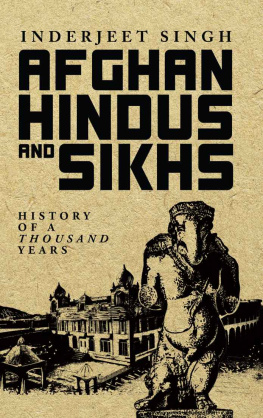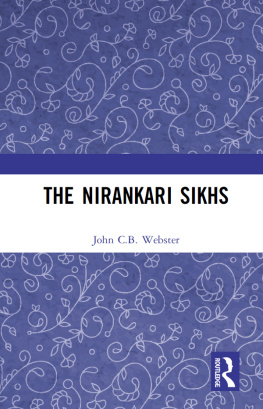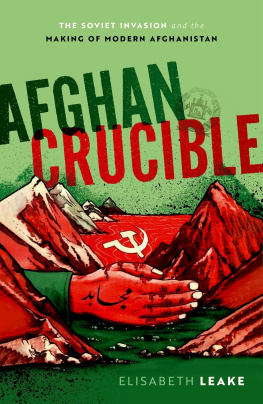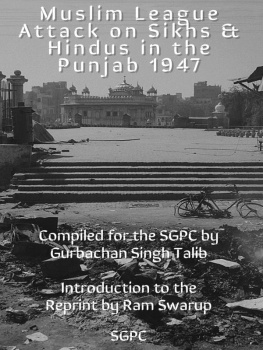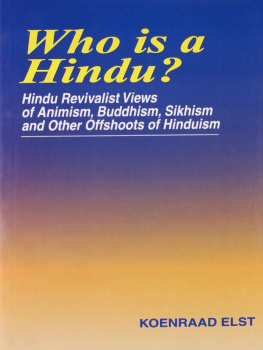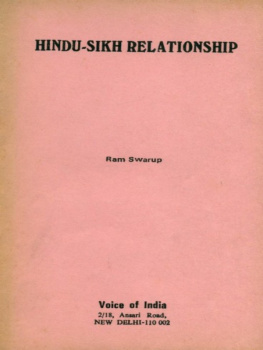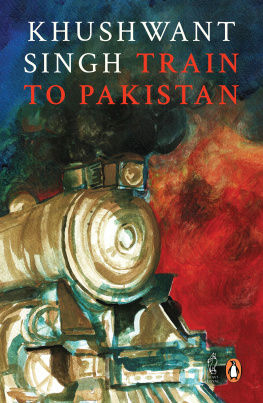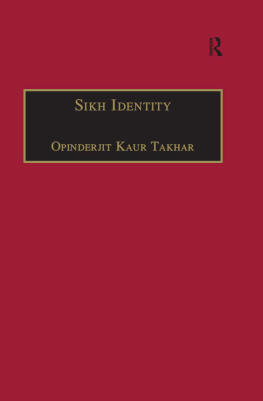Afghan Sikhs and Hindus.
FOREWORD
During my childhood, my father Sardar Teja Singh Khurana Ji used to tell me that we were Afghani Sikhs and have been living in this country for many generations. When I enrolled in the government school, the Muslim students questioned me, What are you, Hindi (Hindustani) Sikhs doing in our country? Why don't you go back to your own country?
This gave birth to a number of intriguing questions in my mind. Who are we? Are we ethnic Afghani? What is our background? And, if we are refugees from India, why did our elders decide to settle in an Islamic country to lead a very challenging life?
In my youth, in addition to my academic education, I tried to find answers to these questions by speaking to elderly Sikhs in Afghanistan. In the midst of many agreements and disagreements, I was able to procure a lot of information about the history of my great nation, Afghanistan. During this period I had the good fortune of meeting the notable historian and writer, Sadhu Singh Saathi Ji and with him, I had the opportunity to contribute to his work, Itihas Khalsa Diwan Afghanistan which revolutionised the study of Afghan Sikhs and also inspired many others to study about them.
Later, Sardar Khajinder Singh Khurana Ji wrote Kabul de Sangat te Afghanistan da Sankhep Ithas . A little later, I in collaboration with Bhai Jodh Singh Maskeen Ji took up the task to write the modern history of Khalsa Diwan Afghanistan but due to various reasons, this work could not be published.
In 2012, when Khalsa Diwan Afghanistan was registered as a charity in the UK, I had the privilege to be one of the founding members along with Saathi Ji. After the formation of the charity, I requested Saathi Ji that we should document the history of prominent Sikhs living in different provinces of Afghanistan, their culture and customs, along with the history of the Gurdwaras in those provinces. However, Saathi Ji was at that time working on a book based on the Dasam Granth to clear the misconceptions facing the Panth. He assured me that we would begin the project proposed by me in 2014. But this was not to be. Saathi Ji was taken ill soon after, and joined the eternal light on 15 th August 2015.
Subsequently, I thought that with Dr Raghbir Singh Bir of Afghan Medical Association of America, I will be able to write something meaningful but when I met him I realised that he too, was unwell and recovering from an illness which dashed my hopes.
In 2015, I met Sardar Harbans Singh Bewas Ji again; we had been introduced back in 2002 for the first time. I asked him if he was still writing and whether he would like to help me in the future. Bewas Ji replied that as long as he lives, he is dedicated to writing for the community and that his zeal to write will never diminish. This encouraging reply from an octogenarian rekindled my hope to finally produce a document about Afghan Sikhs. We got together and in 2017 started working on a book titled Afghanistan de Sarzameen te Chooldey Nishaan aate Sikhi da Parvesh . In addition to it, we have produced small booklets like Saachi Succhi Kamaiye, The Report of Second Conference of Charity Khalsa Diwan Afghanistan, Sanjah Paigham, Dharam aate Bandagi and Das Dahake de Sewadar .
It was during this period that I received a call from Inderjeet Singh. After saying his Gurfateh the caller introduced himself and said that he has written a number of articles on Punjab and Sikh history on Sikhnet.com, and is currently writing a book on the history of Afghan Hindus and Sikhs. He further said that he would like to meet me regarding this venture. We decided to meet on 7 th April 2018 as he lived in Nottingham, about 130 miles north of London. I was very excited about the meeting but unfortunately, my younger sister passed away in the interim and we had to cancel our meeting.
However, Inderjeet continued with his work and contacted me again in August and we arranged to meet on Sunday, 26 th August 2018 with Sardar Harbans Singh Bewas Ji as well. The meeting lasted for two whole hours and we exchanged many interesting thoughts. Inderjeet informed us that his book traces the history of Afghan Hindus and Sikhs from 10 th century ce onwards. I was very pleased that someone was writing about us in the English language, for the very first time. I volunteered to write a foreword for the book which was readily and gratefully accepted by him.
We all know that our Shabad Guru is Siri Guru Granth Sahib Ji which guides us to lead a truthful life but sadly every scholar of our Granth has expressed their deep disappointment that Sikhs have not shared the enlightenment of our great Granth with the rest of the world. We are spending millions of rupees on gold plating the domes of the Gurdwara Sahibs but have been poor in spreading the message of Siri Guru Granth Sahib Ji .
In the same way, the Afghan Sikhs have a beautiful history and are ardent followers of the Sikh religion but have been unable to share and spread the information regarding their background in Afghanistan. Due to this negligence, the Afghan Muslims consider Afghan Sikhs as Indians and the Indians consider us as Afghans. In the post-1992 era we became refugees and faced huge difficulties in explaining our separate identity to the world. When Afghan Sikhs applied for refugee status in the UK and the rest of Europe as our lives were in danger in Afghanistan, the officials told us that they had never heard of Sikhs from Afghanistan. Sadly, we got so involved in our businesses and modern lifestyle that we forgot to explain our separate identity to the rest of the world.
I had thought that after writing the complete history of Afghan Sikhs in Punjabi, I would translate it in English for readers in the UK, Europe and America so that they became more aware of the Afghan Sikhs. But this is not an easy task as a refugee, like the rest of my community, I too faced a number of issues and problems.
It is said that God does not go everywhere but sends his Saints instead, and I could see that my very old wish was being fulfilled by one such, Inderjeet Singh. He has painfully collected contemporary material on Afghan Hindus and Sikhs starting from 10 th century ce and divided different centuries into separate chapters and brought little-known facts and facets of the life of Hindus and Sikhs in Afghanistan.
Inderjeet is an Amritdhari Sikh, a researcher who writes using contemporary sources and puts forward his diverse viewpoint in a way which does not offend anyone. He avoids controversies and creates a rapport with others very quickly. He gave me a summary of the chapters in his book which generated a lot of interest within me. I am eagerly waiting for his book to get published.
After going through the synopsis of each chapter, I believe that this is a unique work which could be used as a historical reference book on Afghan Hindus and Sikhs. In addition, this will be the first work on the history of Afghan Hindus and Sikhs in English and would be able to explore the separate identity and background of my people. I am sure readers in the UK, Europe, India, America, Canada and Afghanistan will find it equally interesting. I hope this book will be helpful for future works on Afghan Sikhs and Hindus.

